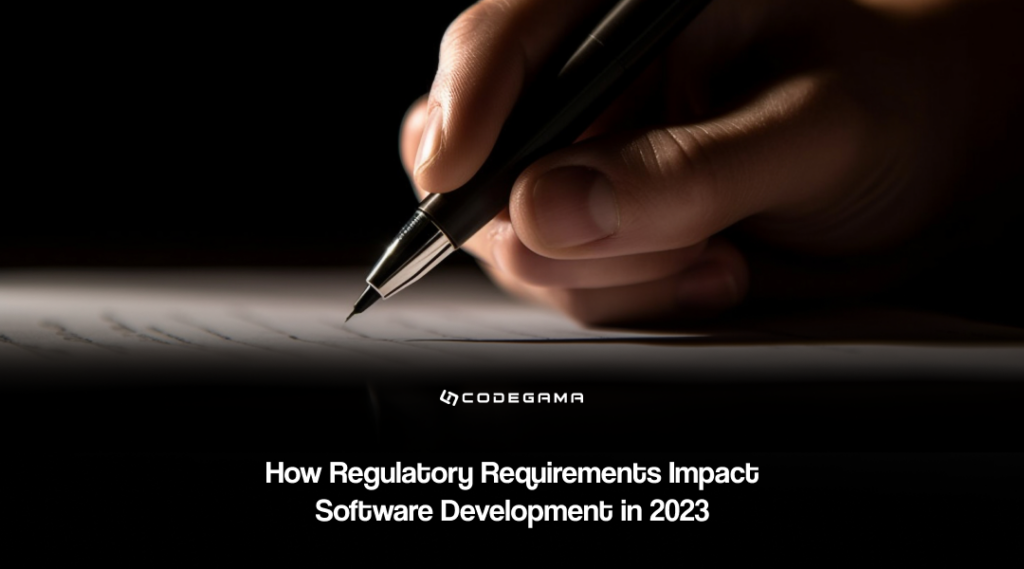
The ever-changing world of tech regulations raising new technologies, guidelines and requirements to build a secure and resilient applications
This rapidly evolving landscape is putting pressure on software developers to develop software that complies with all. If this situation persists, there might be more challenges for them to face in the future to build a regulatory compliant software that is demanded by the customers,
In this blog, we will discover the current state of the regulation industry and how it changes will impact the software development sector in 2023. Let’s dive in
Shortage of skilled talents
The Regulatory industry faces challenges in hiring skilled personnel who know how to develop software according to the changing regulatory requirements. The report by ISACA’a State of Security in 2022 stated that many companies are struggling to find talent and retain skilled employees who know the changing regulatory landscape and how to develop software that is compliant with the changing regulations.
The common skill gaps noted are 54% in soft skills, 34% in security control, and 52% in cloud computing. This skill gap can be overcome if the software companies in 2023 train the employees for the changing regulations. Out of that, enough skilled resources can be brought to fill in-demand positions and prevent the skill shortage.
Increasing data privacy regulations
It is evident that many giant tech to small startups are personalizing their products and services according to the data collected from the users. Literally, millions of user data are collected every day through various software. This scenario concerned many about the data privacy of individuals and the country and turned up many nations to draw regulations on this.
- The European Union created the GDPR regulations in 2016 to give control to their citizens over their data. How it has been used, where it has been used, and everything.
- Followed by the EU, The United States has also been deriving regulations to strengthen its citizen’s control over their data. The California Consumer Privacy Act (CCPA) was passed in 2018 to enable the citizen to have control over the data, and how it has been used by businesses.
- In 2022, 29 US states defined their data privacy bills. Mainly, California expanded its CCPA regulation, which has come into effect in January 2023 to give residents more power and control over the usage of their data.
- The American Data and Privacy Protection Act was introduced further to regulate the collection and storing of user data.
Today’s software developers have to keep this in mind to meet the need for user privacy. They have to first understand the regulations and find the requirements to develop software that complies with data privacy rules. For instance, they can use Privacy by design (PbD) to govern the needs of security and privacy in each stage of development.
Growing complexity of regulatory requirements
The regulatory requirements are changing, and it is increasing the complexity of regulatory reporting. In 2012, the European Market Infrastructure Regulation (EMIR) was introduced. It attempted to strengthen and simplify the regulation of central counterparties (CCPs) and over-the-counter (OTC) derivatives in the EU by establishing reporting requirements.
The EMIR refit will launch on April 29, 2024 (April 30 in the UK). The original legislation is significantly and minutely modified by a study of the EMIR. The overall number of reportable fields rises, and the reporting structure is drastically altered.
The refit is evidently increasing the complexity of the reporting system by introducing new reporting requirements. The Software firm must keep track of these changes with a watchful eye to cope with its speed or consider automating the reporting system to remain compliant in the development.
AI regulations
There is no place that the AI hasn’t entered. Since its inception in every domain, the concern about using it responsibly, avoiding potential dangers is talk of every meet and discussion of global leaders.
Sam Altman, the CEO of AI firm OpenAI has called on the U.S. to create regulations for emerging AI technologies. Italian data protection authorities restricted the service of ChatGPT due to privacy concerns, but later lifted up when OpenAI met up with many regulatory demands of the country.
Seeing the fast pace of AI influence in any domain, chances are high that it will be regulated soon. So, the AI developers must keep track to deliver value and benefits while offering needed protection against harms, inaccuracy biases, and copyright issues.
Bottom line
From the facts we have seen so far, it is evident that tech regulation is changing at a fast pace, and it will take an immense effort for the developers to follow and develop robust and reliable software in 2023.
But with the increasing regulatory requirement, the people will have more control over the way the data is collected and used in 2023. On the other hand, the developers will be put under constant pressure to follow the regulations, and do reports in a complex regulatory environment, accompanied by a shortage of skilled professionals.
To relieve this situation and make a lucrative return from the complexity, industry leaders are collaborating to streamline the reporting and compliance process in one system. So, getting help from a good regulation partner would be essential to comply and stay informed of the new evolving tech regulations.
